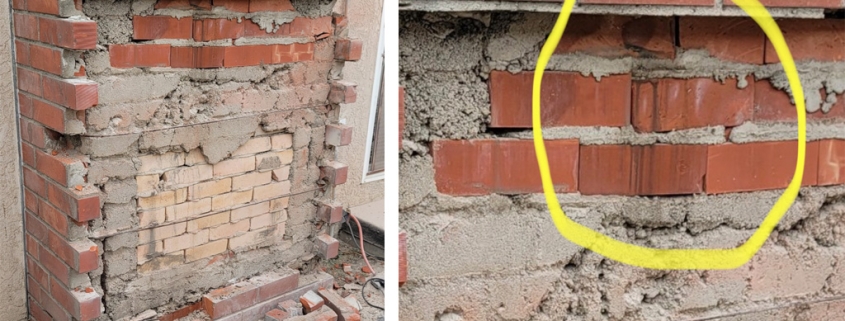The Life Expectancy of Chimneys: When Repairs Are Better Than Replacements
When was the last time you thought about your chimney’s lifespan? Chimneys are an essential part of any home, ensuring safe venting of smoke and gases from your fireplace or heating system. But like everything else in your home, chimneys have a lifespan. Over time, they can degrade, and you’ll face the decision: repair or replace? Understanding the life expectancy of chimneys can help you make informed choices on maintenance, repairs, or even when it’s time for a complete replacement. At Lucky Sully Chimney Sweep, we’ve helped countless homeowners assess and maintain their chimneys, ensuring safety and efficiency year after year.
Understanding the Life Expectancy of Chimneys
A chimney isn’t something most people give much thought to—until something goes wrong. But just like your roof or plumbing, it’s crucial to understand how long your chimney will last to prevent costly surprises. The typical lifespan of a chimney depends on a variety of factors, including the material, environment, and level of maintenance.
On average, a masonry chimney (brick or stone) can last anywhere from 50 to 100 years, while a metal chimney typically lasts between 15 and 30 years. However, these timelines can change based on several external and internal factors. Weather, usage, and maintenance frequency are all key players in determining how long your chimney will serve its purpose.
Regular maintenance and inspection by professionals like Lucky Sully Chimney Sweep can extend the life of your chimney. Without proper care, you might face issues such as creosote buildup, cracks in the masonry, or even rust in metal chimneys, leading to expensive repairs or complete replacements.
What Factors Affect Chimney Longevity?
Understanding the factors that influence your chimney’s lifespan will help you keep it in optimal condition. Here are the key aspects to consider:
Material Type
Different types of chimneys are made from different materials, and each comes with its own set of strengths and weaknesses.
- Masonry Chimneys (Brick and Stone): These are durable and can last 50 to 100 years, especially if well-maintained. However, the mortar joints can deteriorate over time, leading to cracks and eventual collapse if not addressed.
- Metal Chimneys (Stainless Steel, Aluminum): While metal chimneys are generally more affordable and easier to install, they have a shorter lifespan, often lasting around 20–30 years. These chimneys are also more susceptible to corrosion, especially in humid or salty coastal environments.
- Prefab Chimneys: These chimneys are factory-made and often have a lifespan of 15-20 years. They are generally used in homes where the chimney is pre-installed as part of a prefabricated fireplace system.
Weather and Climate
The weather in your area has a significant impact on the lifespan of your chimney. Freezing temperatures and heavy rain can cause bricks to crack and mortar to deteriorate. The freeze-thaw cycle (water entering cracks, freezing, and then expanding) is particularly damaging. In coastal areas, saltwater and humidity can also accelerate corrosion in metal chimneys, leading to faster degradation.
Usage and Maintenance
The more frequently you use your chimney, the more wear it will experience. Chimneys that are used regularly in colder climates face more wear due to soot buildup, while those in warmer climates may experience less damage. Regardless of how much you use your chimney, regular maintenance is key. Having it cleaned and inspected annually will help identify potential issues before they require costly repairs.
Common Chimney Problems That Impact Longevity
Several common chimney problems can significantly impact its life expectancy if not addressed promptly. Here are a few to watch for:
Cracked or Spalling Masonry
Cracks and spalling (the chipping or peeling of bricks) are common in masonry chimneys. This can be caused by the constant exposure to high temperatures, freeze-thaw cycles, or even the settling of the home’s foundation. These cracks compromise the structural integrity of the chimney and can lead to dangerous situations, including potential collapse.
Rust and Corrosion in Metal Chimneys
Rust is a natural enemy of metal chimneys. Over time, the combination of high heat, moisture, and soot can cause metal to corrode. In humid climates or areas near the ocean, rust can form more quickly. If left unchecked, this corrosion can create leaks and ultimately make the chimney unusable.
Flue Liner Damage
The flue liner is a critical component of your chimney. It protects your chimney from high temperatures, chemicals, and byproducts of combustion. Over time, flue liners can crack, get clogged, or deteriorate due to age or excessive use. If the liner is damaged, your chimney can become a fire hazard.
Animal Nests or Debris Blockages
Chimney blockages from bird nests, leaves, or other debris are common but serious problems. Blockages prevent proper ventilation, leading to a build-up of dangerous gases and smoke inside your home. This is a fire hazard and can be dangerous to your health.
If you’re experiencing any of these issues, it’s time to call in a professional like Lucky Sully Chimney Sweep for Chimney & Fireplace Repairs. We can help identify problems early and offer tailored solutions.
Repair vs. Replacement: When Should You Choose One Over the Other?
When it comes to your chimney, sometimes repairs are all that’s needed, while other times, replacement is the only safe option. So, how do you know when it’s time for each?
Signs That You Need Chimney Repairs
- Cracks in the Brickwork: If your chimney’s bricks are cracked or crumbling but still standing, repairs like tuckpointing or masonry work can restore its strength.
- Rust on Chimney Components: Light rust on the chimney cap or other metal parts can usually be cleaned or replaced.
- Flue Liner Issues: Minor cracks or blockages in the flue liner can often be repaired with a relining process.
- Water Damage: If your chimney’s flashing or crown is damaged and causing water leaks, repairing these parts can stop further water damage.
Signs That You Need a New Chimney
- Extensive Structural Damage: If your chimney has significant leaning or is crumbling, replacement may be the only safe solution.
- Severe Flue Liner Damage: If the flue liner is beyond repair, it may be necessary to replace the entire chimney.
- Old Age: If your chimney is nearing the end of its natural lifespan (usually 50–100 years for masonry chimneys), it might be time for a replacement.
For expert guidance on Chimney Repair, don’t hesitate to contact Lucky Sully Chimney Sweep.
How to Extend the Life Expectancy of Your Chimney
Regular maintenance is the best way to extend your chimney’s lifespan. Here are some tips:
Annual Inspections
Getting your chimney inspected at least once a year by professionals will help catch problems before they become expensive issues. An expert inspection can reveal cracks, blockages, and early signs of corrosion.
Routine Cleaning
Keeping your chimney clean is essential for safety and longevity. Creosote and soot buildup can lead to fires and reduce the chimney’s efficiency. Having your chimney cleaned annually ensures smooth operation.
Waterproofing
Waterproofing your chimney helps protect it from moisture, which is one of the primary causes of deterioration. A professional can apply a protective coating to prevent water damage.
Chimney Cap Installation
A chimney cap is an inexpensive addition that helps keep rain, debris, and animals out of your chimney. It’s a simple way to reduce wear and tear on your chimney’s components.
Conclusion
The life expectancy of chimneys can vary based on materials, usage, and maintenance, but with proper care, your chimney can serve your home for decades. Regular repairs and routine maintenance can prevent the need for costly replacements and ensure the safety of your home. If you’re unsure about the condition of your chimney, the team at Lucky Sully Chimney Sweep is here to help with expert Chimney & Fireplace Repairs.
Contact us today to ensure your chimney stays in great shape for years to come!
FAQs
How often should I have my chimney cleaned?
It’s recommended to have your chimney cleaned at least once a year, especially if you use your fireplace regularly.
Can I repair my chimney myself?
While small repairs like cleaning or replacing the chimney cap can be done by homeowners, larger issues like masonry cracks or flue damage require professional attention.
How do I know if my chimney is structurally damaged?
Signs include leaning, visible cracks, or crumbling bricks. If you notice any of these, it’s time to call in a professional.
What happens if I ignore chimney repairs?
Ignoring repairs can lead to severe safety issues, including chimney collapse or fire hazards.
How long does a chimney liner last?
Chimney liners generally last between 20 to 30 years, depending on the material and how often the chimney is used.









